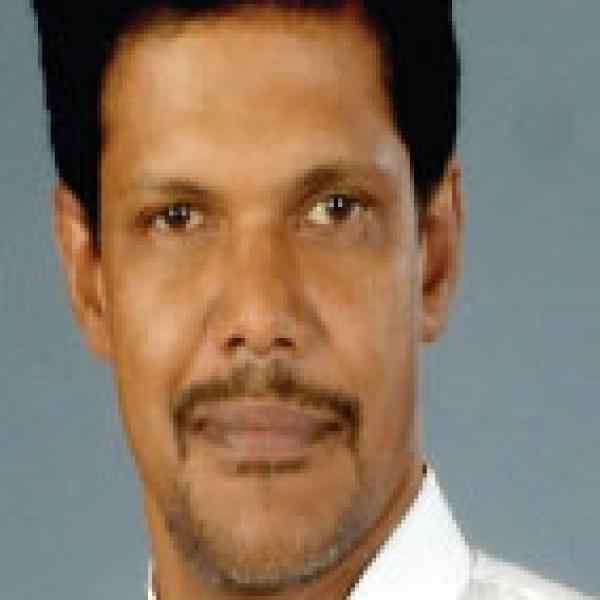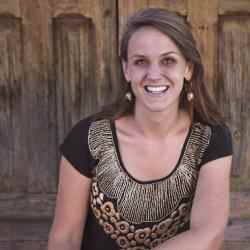Introduction
By defying the culture of silence and impunity surrounding high incidents of torture and rape, Father Nandana Manatunga, a Catholic priest, is transforming the human rights landscape in Sri Lanka. Father Nandana challenges religious leaders to use their moral authority to advocate for human rights, and organizes volunteers to collaborate with agencies to document abuse, support victims during trial, and influence societal attitudes through community dialogue. He also offers long-term rehabilitation for young victims by providing shelter, legal support, education, and counseling.
The New Idea
Father Nandana offers an all-encompassing support system for victims of rape and torture in Sri Lanka. Whereas other human rights groups in the region address only the immediate needs of abuse victims, Father Nandana provides victims with a secure and supportive home for their long-term rehabilitation. Victims have access to shelter, security, legal assistance, and psychological rehabilitation, in addition to schooling and financial support during their stay.
The second critical component of his work hinges on media outreach and advocacy for victims’ rights. Working in partnership with other local and international agencies, Father Nandana ensures that cases of abuse are fully documented and publicized in the form of urgent appeals and press releases, thereby strengthening the broader calls for legal reform in Sri Lanka. As a result, more people are coming forward today to report cases of child abuse and rape than ever before.
Most importantly, Father Nandana aims to cultivate the role of religious leaders and institutions in the defense of victims’ rights. While religious leaders typically shy away from public criticism of the authorities due to fear of retribution, Father Nandana seeks to involve them in professional counseling, court observation, and education sessions. Taking advantage of the visibility and respect afforded to his position, Father Nandana uses religious channels to spread awareness concerning particular cases, and to distribute his calls for legal reform. He firmly believes that religious groups have a moral responsibility to defend basic human dignity, and is thus demonstrating how religious institutions can be transformed from conservative bodies that are commonly indifferent to human rights concerns, to those keenly engaged in their defense.
The Problem
In recent years, Sri Lanka’s weak law enforcement units and widespread public apathy have led to a growing number of human rights abuses, particularly in the form of rape and torture. According to police statistics, a rape takes place every five and a half hours in Sri Lanka. The country’s corrupt investigation system, however, often means that perpetrators go uncaught, or otherwise escape with mild sentences. Meanwhile, decades of heavy militarization within the country’s police force have meant that torture is now a routine form of criminal investigation. Anti-torture legislation introduced in 1994 has been widely ignored, with only three convictions for torture since that date.
Furthermore, Sri Lankan law has no provisions for victim and witness protection, leading to widespread intimidation by police and other government officials. Cases take years to be heard, providing ample time for the perpetrators to have the case withdrawn, or to pressure the victims’ families, most of whom are poor, to settle out of court. At the highest level, the country’s weak and corrupt judiciary has had little political interest in improving the management of courts and trials, and there are consequently 15,000 cases pending in today’s Appeals Court. The end result is a culture of increasing apathy toward such human rights abuse, where rape and torture are treated as commonplace.
Beyond the lack of law enforcement, very little is being done to address the needs of victims. Apart from the immediate trauma and confusion, victims of rape and torture face challenges in making their stories public in Sri Lanka’s historically conservative society. Poor and uneducated, victims are frequently shamed into silence. Organizations that offer assistance to abuse victims focus on immediate crisis-intervention, primarily in the form of short-term counseling or legal aid. These efforts ignore victims’ long-term psychological needs, and do nothing to change the underlying culture behind such abuse in the first place.
The Strategy
Father Nandana’s approach consists of three main planks: Providing a safe and supportive environment for young abuse victims to rebuild their lives; developing a group of professional supporters to work directly with the victims; and using both religious influence and the media to change public attitudes.
To meet victims’ day-to-day physical and psychological needs, Father Nandana established the Home for Victims of Torture and Rape in the city of Kandy. Apart from offering counseling and legal guidance, the home helps young victims return to their normal lives, and rekindle their hopes for the future. The home provides both schooling and recreational activities, while those who are beyond school-going age or otherwise choose not to attend engage in vocational training. Over time, victims and their families realize that they need not suffer, that they indeed have rights that can be asserted, and they can stand as models for others and thereby bring about a larger change in their society.
A key element of Father Nandana’s work is ensuring that abuse victims have access to a diverse support network, whether in the home, at school, or in court. To this end, Father Nandana connects victims with a trained support group, consisting of counselors, doctors, lawyers, and foster parents, who typically meet with the children on their days off. In addition to offering psychological support, the group collects and records evidence that can be used in future stages of advocacy and legal action. Its members are familiar with the legal process and how to best carry cases forward without further threatening a victim’s safety.
Similarly, Father Nandana is committed to ensuring that none of the victims ever go to court alone. Around twenty-five people accompany each victim to court, providing them with confidence, encouragement, and protection as they are brought face-to-face with their perpetrators. These support groups include priests and nuns, professionals, and other respected leaders, whose presence in court both adds weight and credibility to the victim’s case, and generates public interest in cases that would otherwise find no attention. These individuals also give public and private talks in an effort to further strengthen public awareness. The individual complaints advance a wider discussion about the problems of torture and rape in Sri Lanka, and their possible solutions.
Finally, to better use the church as a vehicle for change, Father Nandana has established the Media Center: A church agency that brings together, education, religion, and advocacy with modern media technology. At the Center, Father Nandana teaches human rights courses to local high school students, illustrating his points with reference to specific cases of torture and rape. The students then create materials, including posters, postcards and multimedia campaigns to inform the general public on human rights. In addition to his work with students, Father Nandana offers education sessions directly to his fellow religious leaders, urging them to exercise their voice and authority to address their constituencies on human rights issues. Many have done so; others have become much more deeply involved in the work by accompanying victims to court and training as trauma counselors.
Today, other religious practitioners and human rights groups elsewhere in Sri Lanka and the world are studying Father Nandana’s model. The Asian Human Rights Commission, based in Hong Kong, has promoted it as an effective and important approach to human rights work in a number of other countries in Asia, and Father Nandana now plans to expand his area of activities.
The Person
Father Nandana grew up in a family that included both priests and lawyers. During his most formative years, he thereby developed profound religious and legal insight, and at the age of nineteen, he joined the seminary. He obtained further training in India and the Philippines, where he developed a particular interest in human rights issues.
In 2001, when the case of a young girl raped by two men went to court, Father Nandana organized a group of twenty-five people to offer her moral support at the trial. He continued organizing support groups for similar cases, and thanks to his position as a priest, his reputation as a trustworthy legal advocate quickly spread. Soon, families from various religious faiths began bringing young victims to him, and it was then that he truly recognized the need for religious practitioners to take an active role in the human rights concerns of ordinary people. Having been appointed a senior post working for a Bishop, he resigned to run the Media Center and his parish full-time.




